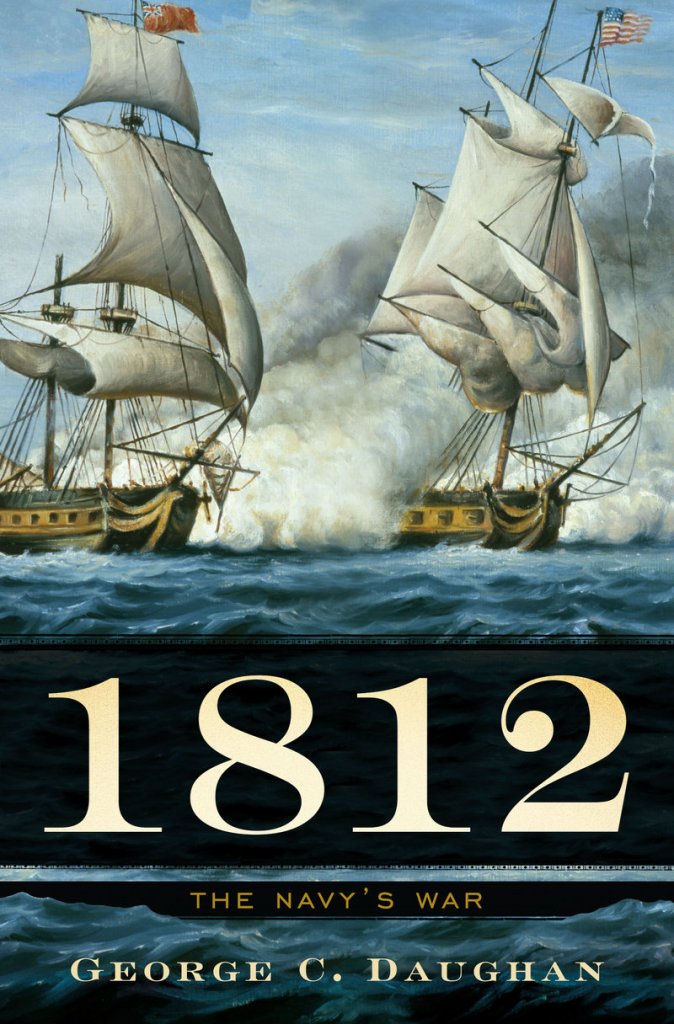One of the fun things about talking to historians is you can play a game of “what if?”
What if, for instance, the United States had not been able to stand up to the British in the somewhat-forgotten War of 1812? The U.S. was still a very young nation, and it was at war with one of the most powerful countries in the world.
“As a result of their defeat, the British changed their whole approach to America. They finally accepted that Americans would dominate this continent,” said George Daughan, a Portland historian and author. “They finally decided to make a friend of the U.S.”
Great Britain and the United States remain allies 200 years later. But what if that friendship was never forged?
The importance of the War of 1812, and specifically the importance of the U.S. Navy’s role in it, are at the center of Daughan’s new book, “1812: The Navy’s War” (Basic Books, $32.50), published to coincide with the 200th anniversary of the war’s start. (Although it’s referred to as the War of 1812, it was actually waged from 1812 to 1815.)
It’s Daughan’s second book dealing with the U.S. Navy. His first, “If By Sea,” was about the development of the Navy beginning with the Revolutionary War.
Daughan is an Air Force veteran and former Air Force Academy instructor who also ran a textile importing business.
Q: What was the cause of the War of 1812?
A: One of the direct causes was that the British were impressing our sailors. Their fleet needed 145,000 men, and the desertions from the British navy were in the thousands. So they were taking sailors off ships of other nations. The country was outraged for years, but the British refused to stop.
No. 2 was that the British were interfering with our trade, forcing all our trade to go through British ports and pay a license fee.
And the third thing was that the British were using the Indian nations to terrorize settlers in the West. The Indians’ cause in the greater scheme of things was justified, but the British aid was further proof that the British did not accept the U.S. as a sovereign nation.
When the U.S. declared war, Great Britain was in the midst of a war with Napoleon, and things didn’t look good for them. President Madison figured the English would be under pressure to come to terms with us. But Napoleon was defeated in Russia, and things did not go well for the U.S.
Q: So where does the navy come in?
A: The British mounted a large-scale invasion from two places, Canada and New Orleans, along with large-scale raids up and down the coast. They raided Washington and burned the capitol. They invaded from Canada with 10,000 men, but felt they needed to control Lake Champlain to do it. The U.S. Navy won a great victory on Lake Champlain and stopped the invasion.
Later, the British turned to Baltimore, and the American navy stood against them. (At another battle) when the U.S.S. Constitution defeated a British frigate, this astonished the world, and had a huge impact on London. It was important for British warships to have an air of invincibility.
Then, in single-ship actions, American ships continued to defeat British ships, proving the Constitution’s victory was not a fluke.
Q: Wasn’t England’s navy bigger and better equipped?
A: The British navy had 1,000 ships, 700 at sea at all times. The U.S. had 12 usable ships when war was declared, plus (more than 500) privateers. (U.S.) leaders had been arguing about the importance of a navy since the beginning. James Madison did not want a strong navy; he simply thought it was wrong to spend that money. When he declared war, he didn’t think the navy would matter, that the British would just defeat it. He thought we’d invade Canada by land. But that turned out to be a fiasco. Then U.S. ships began defeating British ships, and Madison changed his mind. He decided he was going to start employing the navy.
Q: Why was the U.S. Navy able to perform so well?
A: They did have leaders who were battle tested (in skirmishes with France and in a war with Tripoli). But it’s one of the miracles of the war the navy was able to perform the way it did. You have to scratch your head.
It turned out American ships were better designed, with better leaders, better crews, better gunnery.
Staff Writer Ray Routhier can be contacted at 791-6454 or at:
rrouthier@pressherald.com
Send questions/comments to the editors.





Comments are no longer available on this story